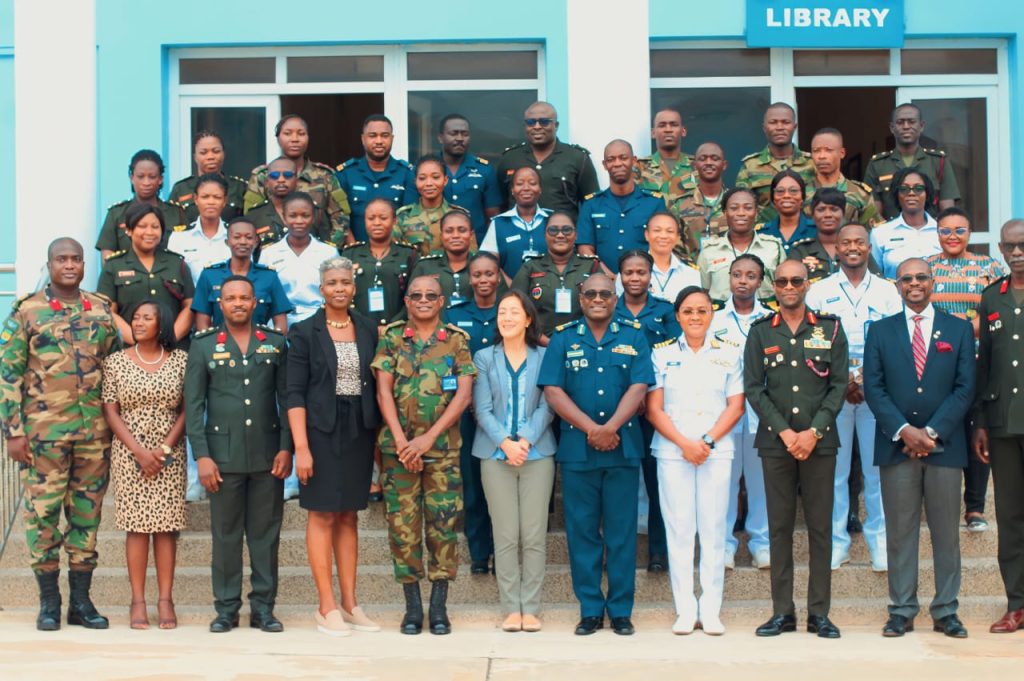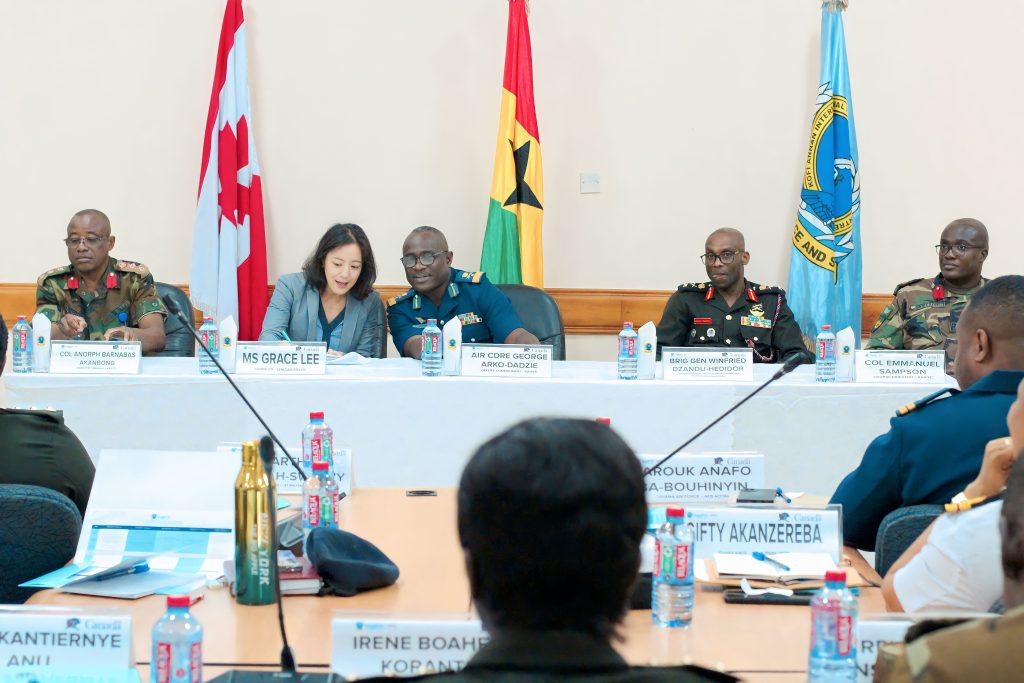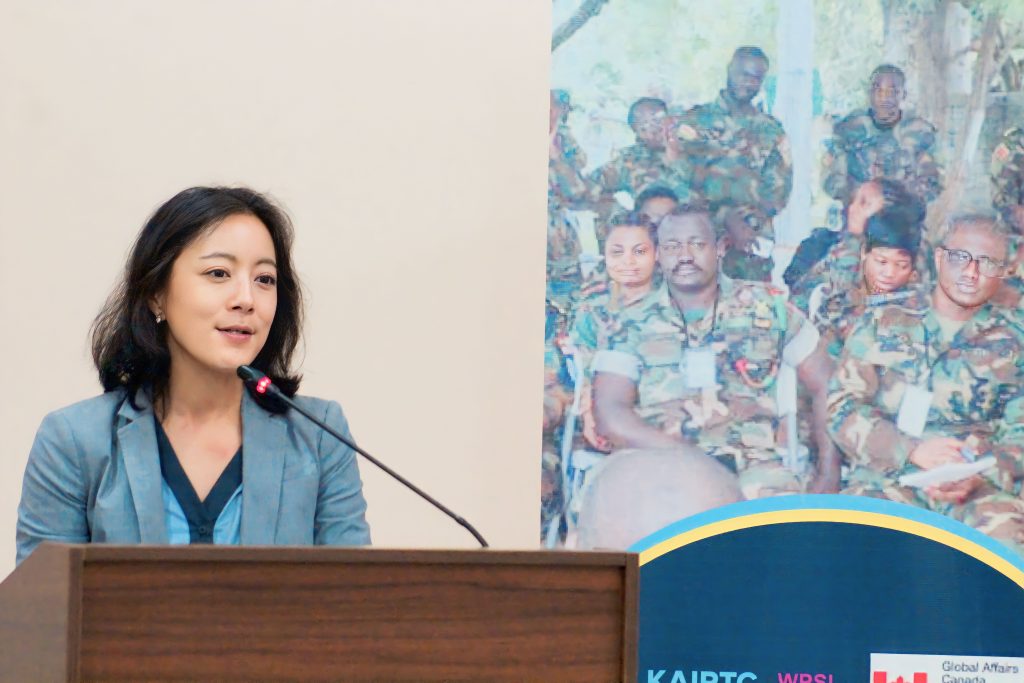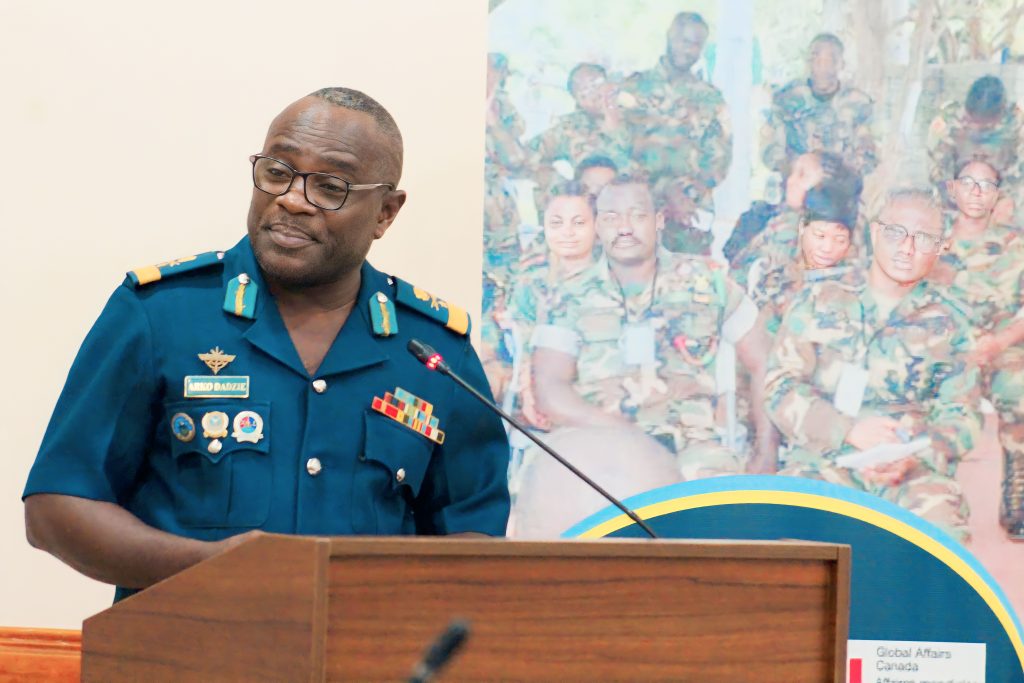By James Amoh Junior
Accra, Aug. 15, GNA – The Kofi Annan International Peacekeeping Training Centre (KAIPTC) has commenced the 2023 United Nation (UN) Staff Officers’ Course (UNSOC) for officers of the Ghana Armed Forces particularly women in peacekeeping.
KAIPTC is organizing the course in collaboration with the Women Peace and Security Institute (WPSI) of the Centre and funded by the Canadian Government under the auspices of Elsie Initiative Programme for Women in Peace Operations.
The initiative forms part of the ongoing project, “Enhancing Ghana Armed Forces Capabilities to Address Barriers to Women in Peacekeeping”.
The three-week residential programme will equip prospective Staff Officers, numbering 31 with 20 female officers, including Captain Cecilia Erzuah, a Ghanaian peacekeeper who served with the UN Interim Security Force in Abyei (UNISFA) and was awarded the 2022 UN Military Gender Advocate of the Year.
Global Affairs Canada is funding the KAIPTC to deliver the training as part of its project with the Centre in support of its bilateral partnership with the Ghana Armed Forces through the Elsie Initiative for Women in Peace Operations.
A Canada-led international initiative, the Elsie Initiative seeks to increase the meaningful participation of military and policewomen in UN peace operations.

Madam Grace Lee, Political Affairs Counsellor, High Commission of Canada, who officially opened the course, said, “meaningful participation” meant ensuring that substantially more women were represented across all ranks and functions in non-traditional roles and senior leadership positions and in assignments that corresponded to their experience and training.
Also, she said, it also meant providing an environment that offered parity of deployment conditions and a professional culture conducive to their participation.
She said Canadians believed that women in military and police services should benefit equally from deployment opportunities to UN peace operations and that they also broaden the range of skills, diversity and capacity available to UN peace operations.
Madam Lee noted that, unfortunately, there were many barriers to the full and meaningful participation of women in peacekeeping.

Through the Elsie Initiative, the Ghana Armed Forces completed and published the results of its barrier assessment entitled, “Measuring Opportunities for Women in Peacekeeping Operations (MOWIP barrier assessment) to better understand the challenges and opportunities facing military and policewomen in deploying to UN peacekeeping missions.
The findings from the GAF’s MOWIP report have informed the programming underway through the Elsie Initiative, including the Staff Officers’ Course.
One of three high barriers identified in GAF’s MOWIP report was “eligible pool” which essentially means that the GAF women are not distributed evenly across roles, ranks and units, limiting their opportunities to deploy meaningfully into a range of roles in UN peace operations.

Furthermore, the MOWIP report found that women tend to receive less peacekeeping training than men, which also limits their eligibility for deployment.
The Political Affairs Counselor said the additional offering of the staff officers’ course was one way that Canada’s Elsie Initiative project with KAIPTC was addressing the issue by increasing the pool of women officers eligible to deploy as staff officers.
She said, “It also contributes to an inclusive working environment whereby all personnel – women and men – have equal access and equal opportunities to train for and be selected for deployment to UN peace operations.”


Air Commodore George Kweku Arko-Dadzie, Deputy Commandant, KAIPTC, said the focus of the course was a shared understanding of the basic principles, guidelines and policies on UN peacekeeping to guide personnel as they carried out critical tasks to assist countries in transition from conflict to peace.
He said, “It is also aimed at developing a robust pool of trained officers of Ghana Armed Forces who can function as staff officers in ECOWAS, AU, and UN field missions with a view to contributing to Ghana’s peacekeeping efforts across the Globe.”
Ghana, Mr Air Commodore Arko-Dadzie, said had established itself as an enviable reference point in global peacekeeping through troop contribution and by virtue of the high professional standards that its personnel had demonstrated in field missions.

He said the African continent was still battling with several armed conflicts, which were hindering its peace, democracy and development, and that peacekeeping missions were the key instruments used in dealing with those inter and intra state conflicts.
To make these missions successful, the Deputy Commandant said an efficient mission headquarters with sound structures and procedures as well as professional Military, Police and Civilian staff were paramount.
Therefore, he said, training personnel for the UN mission headquarters was key for successful peace operations presently and for the future.
GNA